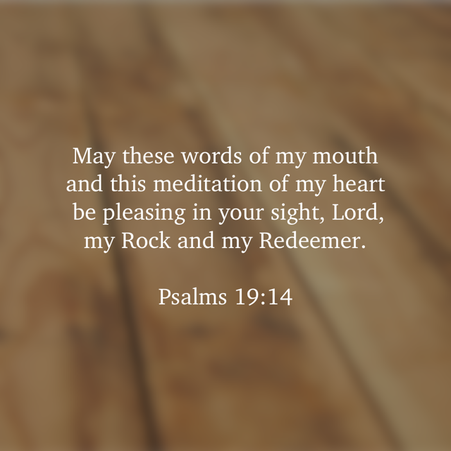|
Good morning!
We're so glad you decided to join us today!
When we meet in person, we share our joys and concerns with each other. If you have prayer requests to share, you can add them to the comments on this post. When you are ready, you may use the prayer below to get started:
Gracious God, we gather this morning facing various challenges in our lives. We admit that we are fearful and uncertain about what lies ahead, that we are ill-equipped to handle them in our own strength. And so we turn to you, and we ask you to go before us and to help us overcome our problems.
Because you are a God who cares about us, we praise you and we thank you. In Christ’s name. Amen.
Today's lesson is on 2 Chronicles 20:13-20.
Lesson context
The book of 2 Chronicles covers the period from 970 BC to 536 BC. It spans from Solomon, the last king of Israel as a united monarchy, to Cyrus, the king of Persia who ended the Babylonian exile. Readers may wonder why the books of 1 and 2 Chronicles are useful since much of their content mirrors that of 2 Samuel and 1 and 2 Kings. A clue is found in the title of 1 and 2 Chronicles as appearing in the Greek version of the Old Testament, known as the Septuagint. There the title translates into English as “Things Omitted.” “Things Omitted” is an appropriate designation for the text of today’s lesson. It focuses on events during the reign of Jehoshaphat, king of Judah (the southern kingdom of the divided Israel) from about 872 BC to 848 BC. The text of 2 Chronicles 17:1-21:3 has much more information about him than is recorded in 1 Kings 15:24 and 22:1-50. Jehoshaphat reigned during the period of the divided monarchy in Israelite history. He was one of the more godly kings of Judah. He is noted for his efforts to rid Judah of idol worship and to promote the teaching of God’s law throughout the land. Also noteworthy is the respect he was held in by surrounding people and the attention he gave to various building projects and administrative reforms. On the downside, however, he entered into an ill-advised alliance with Ahab, king of northern Israel, who enlisted Jehoshaphat’s help in retaking some territory from the Arameans. After hearing of God’s displeasure with that alliance, Jehoshaphat reorganized his government both physically and spiritually. Later a coalition of enemy forces began marching toward Judah. That resulted in the king and his country becoming unified in fasting and public prayer — prayer that confessed utter reliance on the Lord to defeat this threat (1 Kings 20:3-12). The Lord’s response came next.
Facing a crisis (verses 13 to 17)
In this dire situation, representatives from every town came together. The crisis was so severe, in fact, that not only men but also women and children participated. After hearing the king’s prayer, they awaited God’s response. Then the Spirit of the Lord “came on” a man named Jahaziel. As the lesson points out, during the Old Testament era, God’s Spirit seems to have come on certain individuals for a limited time and a specific purpose. In this case, it was so that God could speak through him to the people of Judah. Through him, God tells the people not to be afraid or discouraged by the vast army that is approaching. That’s because the battle is God’s, not theirs. That would have been comforting news to those who believed the message. The coalition army was only about 25 miles away and could be there in less than three days. The instructions are not for the people to do nothing, however. The next day they are to march a particular location, the Pass of Ziz, less than 20 miles from Jerusalem. Although they are to take their positions and stand firm, they will only witness how the Lord delivers them. The words are similar to the ones Moses spoke to the people centuries earlier when the Egyptians pursued them. (See Exodus 14:13-14.)
‘Faith-ing’ a crisis (verses 18-20)
The Lord had heard the king’s prayer and was answering it. Worship was the proper response. The king bowed down, and the people followed his example. Then some from the priestly families of Kohath and Korah got up from the ground and began praising God loudly. Kohath was the second of Levi’s sons. Korah is best known for organizing a rebellion against the authority of Moses. He and those who followed him were swallowed by the earth, but not all the Korahites joined in the rebellion. These are descendants of those who did not rebel. What a contrast it is between these descendants, who rose up to praise God, and some of their ancestors, who rose up to defy Moses! As they set out, King Jehoshaphat calls on his people to have faith in the Lord and to believe in the message they had heard. By having faith in the prophetic message, they will succeed, he tells them. Elsewhere in the Old Testament, when God’s people ignored or mocked the prophets, God sent judgment upon them. (See, for example, 2 Kings 17.) The people of Judah chose to listen to God’s words in this case, and God brought them a providential and even miraculous deliverance. Although it’s not part of today’s lesson, when the people of Judah arrived, instead of finding a vast army, they found a multitude of dead bodies. The biblical account does not tell exactly how this happened but only that the Lord set up ambushes for them and the coalition forces began fighting among themselves. Some commentators speculate that angels initiated a battle, and the different forces began fighting among themselves. Others suggest that a band of desert wanderers attacked a portion of the army, and the allies began attacking each other. In any case, the people were able to plunder their enemies possessions. Both the king and his people returned to Jerusalem just as they had left it — in triumphant praise and worship of the Lord.
Conclusion
King Jehoshaphat had offered a passionate plea to the Lord for help, admitting that neither the king nor his people had any strategy or resources to confront the oncoming threat. Perhaps as his prayer progressed, his voice grew louder, possibly even trembling as he reached the end and declared his utter dependence upon God: “We do not know what to do, but our eyes are on you” (2 Chronicles 20:12). Then came Jahaziel’s Spirit-empowered words. The people’s “uplook” changed their outlook. All of us can probably recall a time when a passage of God’s Word was especially reassuring and helped get us through difficult circumstances. We may not have felt as desperate as Jehoshaphat did, but we experienced the energy that comes from God’s encouragement. We may not be like Jahaziel, who encouraged a king and his nation when the Spirit of God came upon him. But perhaps during the course of a day, someone will come to mind that we should share a Scripture passage with by a phone call, text message, email or postcard. Who might that be?
Prayer
Father, our culture and our world are often characterized by speech and actions that oppose your truth. Keep our eyes on you daily, that we may escape their influence! Thank you for the one who have encouraged us over the years through your promises. May we seek to pass that blessing on to others. In Jesus’ name we pray. Amen.
Questions for discussion:
Benediction
Today's benediction is from the New International Version.
Next week's lesson will be on Romans 12:3-8.
0 Comments
Leave a Reply. |
AuthorWe are a small, rural Presbyterian church in southwestern Pennsylvania. Archives
July 2024
Categories
All
|



 RSS Feed
RSS Feed